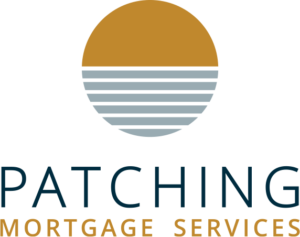Is It All About Rate? Most believe that it is. Many think that obtaining the lowest rate is essential to your real estate investment success. But keep in mind, rate is but one of the four main parts of any residential mortgage offer. Amount, term and amortization period are also critical factors. Each component is related to your overall investment strategy, and your property specific goals.
- Mortgage Amount
One’s Mortgage Amount is usually the critical component of your financing. It’s particularly true in the case of a residential property purchase. The loan amount will directly impact other considerations. You may have secured the lowest rate, but if you lender is only prepared to provide you a loan equal to 70% of purchase price or appraised value? Are you prepared to increase your down payment? And how will this affect your return on investment? - Term
Term is important, but often overlooked when considering your financing options. Do you have plans to flip the property, or are you holding onto it for the long haul? Consider the mortgage pre-payment penalties in order to maximize your investment. There’s a massive difference between breaking a variable rate mortgage in comparison to a 5 year fixed interest rate mortgage. People will say, but at least I know what I’ll be paying for the next 5 years. Right, but what about if you need to sell within the next 5 years, or a better opportunity comes along. You want a mortgage term that can accommodate these moves, and will not d’ing you on penalty charges. - Amortization
Your preference should be guided by your investment strategy when it comes to your amortization period. Your key will be to know exactly how much money you’ll make after the mortgage is paid off. Consider your goals. Is it important that you be debt free by a particular point in time, do you want to grow your property specific or portfolio equity so that you can leverage the asset(s) for future acquisitions? Or, are you in a joint venture ownership situation, where investors are looking for the maximum cash flow? These are all considerations that should effect your amortization period decision. - Rate
Rate directly effects how much your mortgage payments will be per payment period. But how important is it really? Make sure you know all of the details of the loan. What if the best rate also comes with a 5-year term, on a 20-year amortization, with no prepayment privileges, and an increased penalty to break the mortgage. Is this rate still what’s best for you? Plus sometimes the difference in rate can be $20-$30 difference, and lets be honest with ourselves, we probably spend that on coffee in a week. Consider what’s best for your needs, and not worry so much about the rate. Yes, you wont be able to say you have the lowest rate at when it’s the topic of conversation at a party or at the office, but who cares when that’s not your goal. There is much more to a mortgage than rate.
Your Investment Strategy will be Key
Hopefully after reading this you’ve concluded that it’s not all about rate. Of course consider rate, but ensure that all the loan terms align with your property goals, and overall portfolio strategy. Understand which of these four factors or combination of factors is most important to you, and know that all are negotiable to a greater or lesser extent. Paying a slightly higher rate, in exchange for the “right” loan amount so that you can make effective use of debt may be a great decision. Possibly debt service coverage and sufficiency of cash flow is key to your strategy. You may anticipate a softening of rental rates, or possible anticipate a vacancy increase. Secure a comfortable amortization period. Understand what’s important to you, and implement your real estate investment strategy accordingly.

